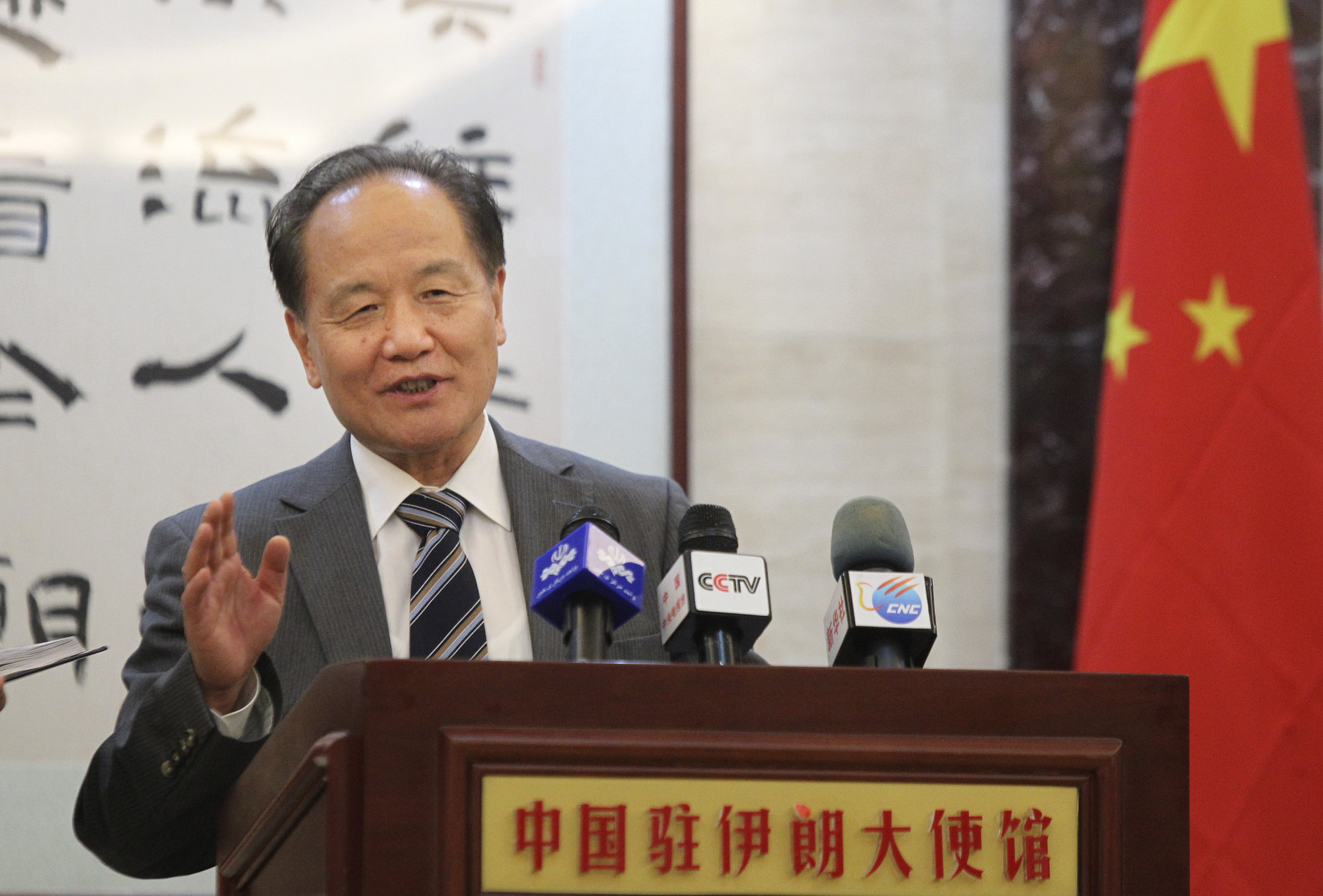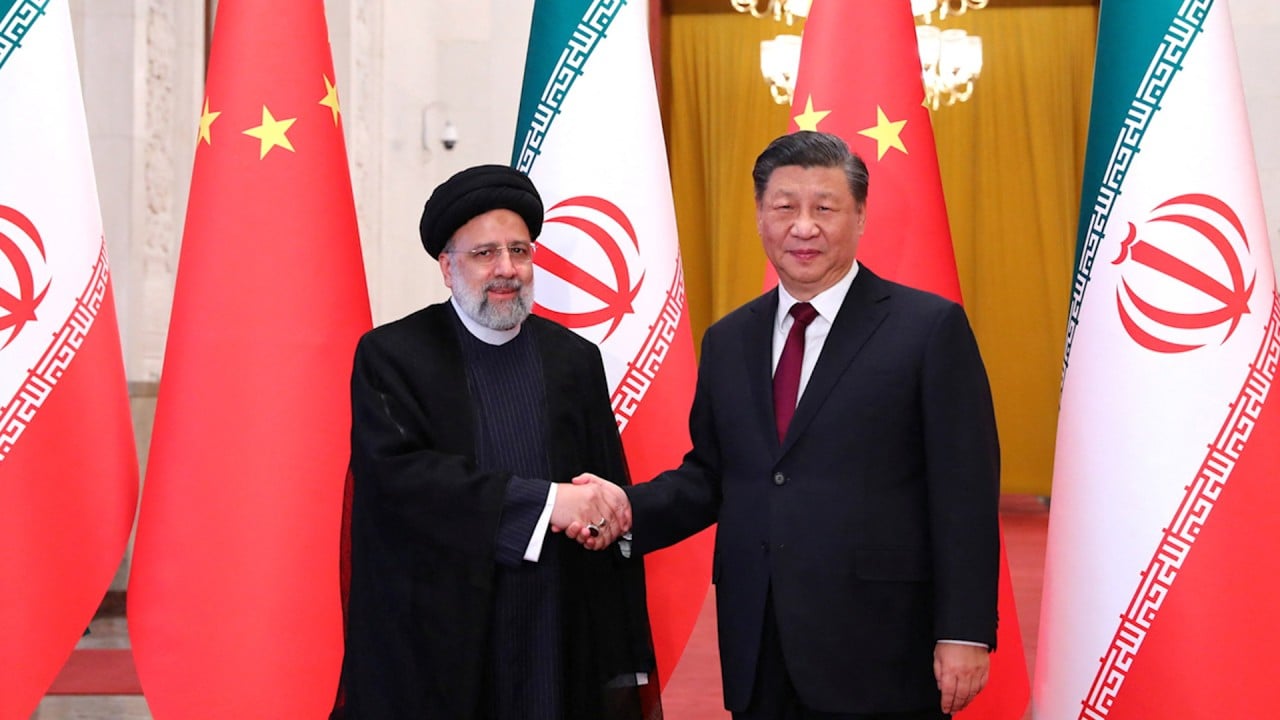
After Saudi Arabia-Iran deal, China should be realistic about its power to broker agreements in Middle East, former envoy to region says
- Communique issued last week said Iran and Saudi Arabia would reopen their embassies within two months
- Former Chinese special envoy for Middle East affairs says deal will improve atmosphere in the region
The full resumption of relations between Saudi Arabia and Iran still faces difficulties despite the diplomatic agreement brokered by China this month, and Beijing should be realistic about its power to broker deals in the region, a former senior diplomat said.
In a move that surprised many, China helped arrange the restoration of diplomatic relations between the two Middle East powers that were severed in 2016.
Wu Sike, a former Chinese special envoy for Middle East affairs, said the tripartite communique issued on March 10 would improve the atmosphere in the Middle East.
“But it is difficult to say that all problems can be solved. This is not very realistic,” he said. “But in any case, it is moving towards stability. China will try its best to do what it can do, step by step.
Wu said China was invited to be a mediator “because both countries understand the country’s enduringly balanced role in foreign affairs, which is fundamental to be seen as trustworthy”.
But he added that China should be realistic in pushing forward with other solutions to problems in the region, including the conflicts between Israel and Palestine, and in Syria, saying those issues were complicated.
“We have to know how much we can achieve and what things can have sustainable results. This is realistic. You can’t just do everything,” he said.
Saudi Arabia severed ties with Iran in 2016 after the storming of its embassy in Tehran in an escalating dispute between the two countries over Riyadh’s execution of a Shiite Muslim cleric.
Ukraine war will be biggest test yet for China the peace broker
The communique issued last week said Iran and Saudi Arabia would reopen their embassies within two months, and resume talks on security, trade, investment and culture.
Diplomatic observers said the deal would make it easier for China and Middle East nations to engage.
“The signing of the agreement between Saudi Arabia and Iran will certainly enhance the expectations of the outside world for China,” said Fan Hongda, a professor at Shanghai International Studies University’s Middle East Studies Institute.
Jonathan Fulton, a senior non-resident fellow at the Atlantic Council, said the deal presented China as an alternative power for resolving regional issues.
“It does signal Beijing’s willingness to wade into hotspot issues in a way that it has resisted until now, so that may be a sign of things to come in other regions,” he said.
China’s role in Saudi-Iran deal could be good for Ukraine, US Republicans
Implicitly criticising the United States’ approach to such issues, foreign ministry spokesman Wang Wenbin said on Tuesday that the Saudi-Iranian dialogue in Beijing had been a successful exercise in the implementation of a strong global security initiative.
“The facts prove that ‘pulling one faction and fighting another’, ‘divide and rule’ and ‘confrontation by camps’ is never the right way to deal with security issues,” he said.
But observers said economic considerations, including trade, investment, and the Belt and Road Initiative – the project kicked off by President Xi Jinping in 2013 to boost global trade and infrastructure connections – remained at the forefront of China’s support for a more peaceful Middle East.

“The major interests of China, at this stage, are still economic,” said Zeno Leoni, an affiliate at the Lau China Institute at King’s College London.
“China has realised that the US is not capable or willing to stabilise the security of the region, so a more proactive role of Beijing is necessary.”
Saudi Arabia and Iran are China’s top sources of oil to power the world’s second-largest economy. China has also been Iran’s largest trading partner for the past decade and it has been Saudi Arabia’s largest trading partner since 2018, when it replaced the European Union.
From 2005 to 2022, China invested over US$273 billion in the Middle East and North Africa region, according to the US House Committee on Foreign Affairs, with 46 per cent of the money flowing into the energy sector.
In 2021, China’s crude oil imports from Arab countries reached 264 million tonnes, accounting for more than half of the country’s oil imports.
How China’s Saudi-Iran deal shows Beijing’s Mideast influence
“The primary advantage for China is a less volatile region,” Fulton said. “It does a lot of business in the region and gets a lot of its energy from the Gulf, so having a more stable security environment is important for China’s own interests.”
Leoni said China needed to focus more on the Middle East and the Global South – nations in Latin America, Africa, Asia and Oceania – because there had been some resistance to China from Western nations since the start of the Ukraine war due to suspicions about China’s ties with Russia.
Fulton said China’s worsening bilateral ties with the US, European anger over China’s support for Russia, and Asian concerns about tensions in the Taiwan Strait, meant Beijing needed “more positive stories on the foreign policy front”.
But even though Beijing is taking on a more ambitious diplomatic role, Wu said its fundamental diplomatic logic would not change.
“It is China’s basic policy to solve global problems peacefully through dialogue,” he said.


